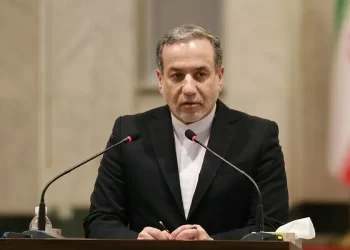The Dubai real estate looks set to regain growth momentum as the government eased most of the pandemic-related restrictions that will benefit tourism, aviation, hospitality, logistics and retail sectors, experts say.
Analysts, top executives and industry experts said property sector will be ultimate beneficiary of the ease in travel restrictions which were imposed to contain the Covid-19 pandemic. They said real estate sustained steady growth trend even during the pandemic and now it will pick up growth momentum as investors face no major restrictions to visit and invest in the UAE.
Haider Tuaima, director and head of Real Estate Research at ValuStrat, said real estate will sustain an upward trend as strong demand persists in the market.
“We can expect continued high momentum in relation to demand for end-user as well as investment properties in Dubai. The pandemic restrictions have not dampened the market as a record number of sales continued during the last 21 months. But this trend could change due to the rising cost of living, increasing mortgage rates, stronger US dollar, and anticipated new supply,” Tuaima told Khaleej Times.
Advertisement
Latest data indicates that the Dubai real estate registered record sales during the first nine months of 2022 as investors and end-users rushed to purchase properties in the emirate.
“The total sales value exceeded Dh180 billion with more than 67,000 transactions during the January-September 2022, making it the largest sales value ever during the first nine months of the year. Previously, the emirate recorded Dh116 billion highest sales in the similar period in 2009,” according to the latest data by Dubai Land Department.
Bright prospects ahead
Imran Farooq, CEO of Samana Developer, said ease in Covid-related restrictions will further accelerate growth in the real estate sector.
“It’s a moment as the world simply wants to forget about the pandemic and move on. No Covid limitation will encourage more travellers. More in-bound visitors and visitors means Dubai real estate will get a boost,” Farooq told Khaleej Times.
David Abood, partner at real estate consultancy Core, said the strong momentum that the Dubai real estate market gained over early 2022 continues with robust growth witnessed across performance indicators for all asset classes.
“Transaction volumes continued to keep their upward trajectory with third quarter of 2022 recording the highest value of secondary market transactions concluded ever in a quarter and the second highest number of transactions till date.
“As we go back to pre-pandemic levels with travel, mobility, occupancy levels and regulations (particularly the recent announcement that masks are no longer required, with a few of exceptions) indicating a return to normalcy, we expect socio-economic sentiment to improve further,” Abood told Khaleej Times.
HNWIs to lead
Ata Shobeiry, chief executive of Zoom Property, said Dubai property market has a history of showing great resilience to external factors. “There was a dip when the pandemic was at its peak in the region. However, thanks to the government policies, a successful vaccine drive, and incentives offered by developers, it picked up pieces quickly and has been cruising since then,” Shobeiry said.
“And now, since the pandemic restrictions are officially over, the market will continue its upward trajectory. Many foreign investors and HNWIs have already shown interest in Dubai real estate, which is evident from the market’s performance in the last few months,” he said.
Ayman Youssef, vice-president, Coldwell Banker, UAE, said travel and tourism contribute a substantial part of the GDP, and have a significant impact on various industry, business and economic aspects. Besides the fact that 10 per cent of employment comes from this industry which accounts for a noteworthy part of the population, the inflow of tourists, relaxed visa rules and increased business opportunities is bound to create an increased need for housing and real estate facilities.
“It is basically a ripple effect, opening up of travel and tourism will result in an influx of visitors, businessmen and investors leading to a better economic situation and increase in population. This will subsequently result in an increase in demand of real estate properties and will drive better pricing,” he said.
Villa sales to dominate
Tuaima of ValuStrat said the villa segment will sustain strong demand in the post-Covid era.
“Villa and townhouse prices appreciated 52 per cent since the pandemic trough, but are still overall lower than the 2014 peak with exceptions in Palm Jumeirah and Emirates Hills where villa prices are now well above their 2014 highs. Demand is expected to continue to be strong particularly for larger, well-located homes, albeit at slower growth rates,” he said.
Farooq of Samana Developer said Dubai Land Department stats and new enquiries for our projects are currently witnessing extra ordinary demand from end-users.
“It is not only villa or penthouse but the investor interest is across the board including high quality apartments and luxury properties gaining popularity among new millionaires and billionaires flocking to Dubai,” he said.
Villa supply constraint
Abood of Core said villa demand will remain strong due to supply constraints.
“Yes, the reason for increase in villa prices and occupancy rates reflect the strong demand for villas thereby creating a supply deficit. The need for larger unit types, especially villas and townhouses having sufficient usable outdoor space with masterplans offering a variety of amenities and a sense of strong community remains a key decision driver for many residents, particular for families with children,” he said.
“While we expect some reversal in demand from villas to apartments due to the high prices, most existing villa occupiers would prefer moving to affordable areas to continue living in villas,” he said.
Double-digit growth
Shobeiry of Zoom Property said villa prices in a few neighbourhoods continue to cross double-digit figures in terms of monthly growth.
“Take the example of Palm Jumeirah and Dubai Hills Estate. These communities witnessed a price increase of 18 per cent and 11.5 per cent, respectively, in August 2022. Despite this significant price increase, the demand for villas is increasing. This clearly shows that the villa segment will sustain strong demand post-Covid era as well,” he said.
Yourself of Coldwell Banker, UAE, said villa sales surged during the pandemic as people preferred bigger space over the apartments.
“While the demand for the villa and luxury segment did pick up during the pandemic as people were looking for bigger and better working spaces due to the change in lifestyle and work schedules, we are positive that this trend will sustain and we can expect moderate growth,” he said.
“The ultra-luxury segment will grow at a slower rate, however beach front properties are expected to continue the growth, mainly because at the moment the demand for beach front properties is high while supply is limited,” he said.









